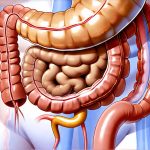Digestive issues are incredibly common, touching almost everyone’s life at some point. From occasional bloating after a rich meal to fleeting bouts of diarrhea, these experiences often resolve on their own without significant concern. However, when digestive discomfort becomes recurrent – meaning it keeps coming back, persists for extended periods, or intensifies over time – it’s crucial to pay attention and understand the difference between typical fluctuations and potential warning signs. Ignoring persistent digestive problems isn’t just about enduring discomfort; it can mean missing opportunities for early diagnosis and intervention of underlying conditions that could significantly impact long-term health.
Many factors contribute to recurring digestive issues, ranging from dietary habits and stress levels to food intolerances and underlying medical conditions. Understanding the nuances of these challenges is key to navigating your gut health effectively. This isn’t about self-diagnosing; it’s about becoming an informed patient who can articulate concerns accurately to healthcare professionals and advocate for appropriate evaluation. It’s also about recognizing when a ‘wait and see’ approach has run its course and active investigation is needed. A proactive, informed stance allows you to take control of your digestive well-being and potentially prevent more serious complications down the line. You may even find helpful information in recognizing digestive red flags as a starting point.
Recognizing Patterns in Recurrent Digestive Distress
Recurrent digestive issues aren’t usually defined by one dramatic event; they unfold as patterns over time. This means paying attention not just to what symptoms you’re experiencing, but also when, where, and how often. Consider keeping a detailed symptom journal – this can be invaluable when discussing your concerns with a doctor. Note everything: what you ate, how you felt physically and emotionally before, during, and after experiencing discomfort. This level of detail helps identify potential triggers and trends that might otherwise go unnoticed. In some cases, stool issues may be a key indicator to track.
The type of symptoms is also important. Are we talking about primarily abdominal pain? Changes in bowel habits (diarrhea, constipation, or alternating between the two)? Excessive bloating and gas? Nausea and vomiting? Heartburn or acid reflux? Each symptom can point towards different potential issues. For example, chronic diarrhea might suggest malabsorption problems or inflammatory bowel disease, while persistent constipation could indicate a lack of fiber, dehydration, or even underlying structural issues in the colon. Chronic is the key word here – symptoms that linger for weeks or months necessitate further investigation. If you have experienced post-COVID digestive fluctuations, this may also be something to discuss with your doctor.
Furthermore, don’t dismiss seemingly unrelated symptoms. Digestive health is often interconnected with other systems in the body. Fatigue, skin rashes, joint pain, and even changes in mood can sometimes be linked to underlying digestive problems. These connections are why a holistic approach – considering the whole person rather than just isolated symptoms – is so important when assessing recurrent digestive distress. Ignoring these subtle cues could delay diagnosis and treatment. Understanding digestive intolerance can also help you connect the dots between your health concerns.
When To Seek Professional Evaluation
Knowing when to seek medical attention is perhaps the most vital aspect of managing recurring digestive issues. While occasional discomfort can often be managed with lifestyle adjustments, certain red flags demand prompt evaluation by a healthcare professional. This isn’t about panicking over every minor symptom; it’s about recognizing indicators that something more serious might be going on. Delaying medical attention when these red flags are present could lead to worsening conditions and complications.
One clear signal is the presence of blood in your stool – whether visible or detected through testing. This can indicate bleeding anywhere along the digestive tract, from the esophagus to the colon, and requires immediate investigation. Similarly, unintentional weight loss accompanied by digestive symptoms should never be ignored. This suggests that your body isn’t absorbing nutrients properly or that there’s an underlying condition interfering with digestion. Other concerning signs include severe abdominal pain that doesn’t subside, persistent vomiting, difficulty swallowing (dysphagia), and a noticeable change in bowel habits lasting longer than two weeks.
It is important to remember that even without these dramatic red flags, if your digestive issues are significantly impacting your quality of life – interfering with work, social activities, or daily routines – it’s time to seek professional help. Don’t underestimate the toll chronic discomfort can take on your mental and emotional well-being. A healthcare provider can perform a thorough evaluation, rule out serious conditions, and develop an appropriate management plan tailored to your specific needs. Some find relief through acupuncture as part of their wellness journey.
Identifying Potential Underlying Causes
Once you’ve decided to consult a healthcare professional, understanding some potential underlying causes can help guide the conversation and ensure you’re asking the right questions. Many recurrent digestive issues stem from functional disorders – meaning there’s something wrong with how the digestive system works rather than structural abnormalities. Irritable Bowel Syndrome (IBS) is perhaps the most well-known example, characterized by abdominal pain, bloating, and altered bowel habits.
However, other conditions can mimic IBS symptoms, making accurate diagnosis crucial. These include Inflammatory Bowel Disease (IBD), encompassing Crohn’s disease and ulcerative colitis – chronic inflammatory conditions that affect the digestive tract. Celiac disease, an autoimmune reaction to gluten, is another important consideration, as it can cause a wide range of digestive symptoms along with malabsorption issues. Lactose intolerance and other food sensitivities can also contribute to recurring discomfort.
Beyond these common culprits, less frequent but potentially serious conditions like microscopic colitis (inflammation in the colon detectable only through biopsy) or gastroparesis (delayed stomach emptying) should be considered by your healthcare provider during evaluation. The key is a comprehensive assessment that includes a detailed medical history, physical examination, and appropriate diagnostic testing.
The Role of Diet and Lifestyle
While underlying medical conditions may require specific treatment plans, dietary and lifestyle adjustments often play a significant role in managing recurrent digestive issues – even alongside other therapies. Identifying food triggers is paramount. This might involve an elimination diet, guided by a healthcare professional or registered dietitian, to systematically remove potential problem foods and reintroduce them one at a time to observe any reactions.
- Common culprits include:
- Gluten
- Dairy
- High-FODMAP foods (fermentable oligosaccharides, disaccharides, monosaccharides, and polyols)
- Spicy foods
- Caffeine and alcohol
Beyond diet, stress management is crucial. The gut-brain connection is strong, meaning that stress can significantly impact digestive function. Techniques like mindfulness meditation, yoga, deep breathing exercises, and regular physical activity can help reduce stress levels and improve gut health. Adequate hydration is also essential for maintaining healthy bowel function.
Finally, consider the impact of your sleep patterns. Poor sleep can disrupt the gut microbiome and exacerbate digestive symptoms. Aim for 7-9 hours of quality sleep each night to support optimal digestive health. Remember that these are general recommendations; individual needs may vary. Eliminating carbs too fast can also play a role in digestion, so it is important to be mindful of dietary changes.
Navigating Diagnostic Testing
When you visit a healthcare provider with recurrent digestive issues, expect a series of diagnostic tests to help pinpoint the underlying cause. The specific tests will depend on your symptoms and medical history, but common options include:
- Stool Tests: These can detect blood, infections, parasites, and markers of inflammation.
- Blood Tests: These can assess for anemia, inflammation, celiac disease antibodies, and other indicators of digestive problems.
- Endoscopy/Colonoscopy: These procedures involve inserting a flexible tube with a camera into the esophagus or colon to visualize the lining and collect biopsies if needed.
- Imaging Studies: X-rays, CT scans, and MRIs can help identify structural abnormalities in the digestive tract.
- Breath Tests: These are used to diagnose lactose intolerance or small intestinal bacterial overgrowth (SIBO).
It’s important to ask your doctor about the rationale behind each test, what it will involve, and how the results will be interpreted. Don’t hesitate to seek clarification if you don’t understand something. Active participation in the diagnostic process empowers you and ensures that the evaluation is thorough and tailored to your specific needs. Remember, testing isn’t just about finding a diagnosis; it’s about ruling out possibilities and narrowing down the potential causes of your digestive distress. Mixing meal types may also contribute to digestive issues, so understanding this can assist in diagnostic testing.


















